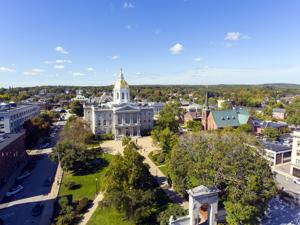New Hampshire’s redistricting plans on hold amid census data delay

(The Center Square) – New Hampshire’s decennial redrawing of the state’s political maps is being delayed by a lack of census data.
The U.S. Census Bureau announced last month that due to the COVID-19 pandemic and other delays, it will not be able to deliver the detailed data states need for redistricting until Sept. 30, instead of by March 31.
The delay is complicating efforts by state legislatures to redraw congressional and legislative districts this year, as is required every 10 years.
Rep. Barbara Griffin, R-Goffstown, who co-chairs the New Hampshire Legislature’s Special Committee on Redistricting, said the delay means lawmakers won’t be able to act on redistricting for several months.
“The reality is we have no redistricting data to use to begin our work,” she told committee members during a livestreamed hearing on Tuesday, where lawmakers were supposed to take testimony on several bills related to the redistricting process. “That has significantly impacted the time frame that we have to do the work.”
The U.S. Constitution requires states to draw new congressional district lines every 10 years, following the census, to account for changes in their population. States also use those numbers to draw maps for their state legislative districts.
New Hampshire has 424 state legislators and two representatives in Congress, which could increase or decrease depending on the count.
In 2010, the Census Bureau estimated the state’s population at 1,316,470 – a growth of 3% in nine years.
Democrats have raised concerns that Republicans – who control the House and Senate after the November 2020 election – might try to redraw political maps to favor GOP candidates.
New Hampshire GOP Chairman Steve Stepanek caused a stir earlier this year when he vowed the state would elect a conservative Republican to Congress in 2022 after redistricting.
Good government groups are urging lawmakers to ensure a fair redistricting process.
Olivia Zink, executive director of the nonprofit Open Democracy, told the committee she hopes that once the process gets underway it will be “a fair, nonpartisan redistricting process, free from using partisan data.”
Liz Tentarelli, president of the New Hampshire League of Women Voters, urged the committee to hear from municipal and county officials as they deliberate on a new set of political maps for the state.
“I have great confidence that this committee will be open and transparent in its work,” she said.
Disclaimer: This content is distributed by The Center Square


